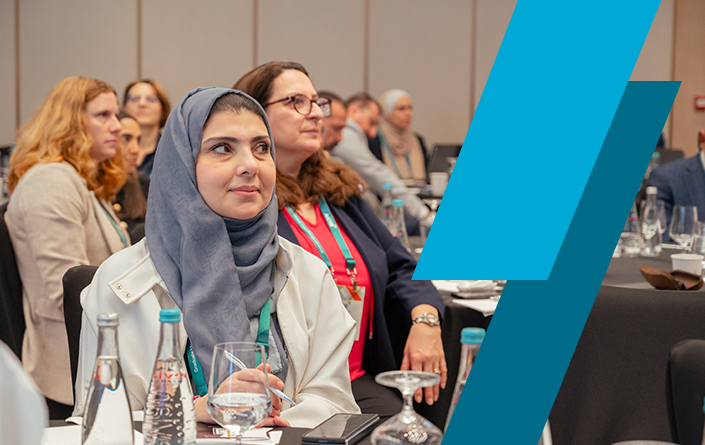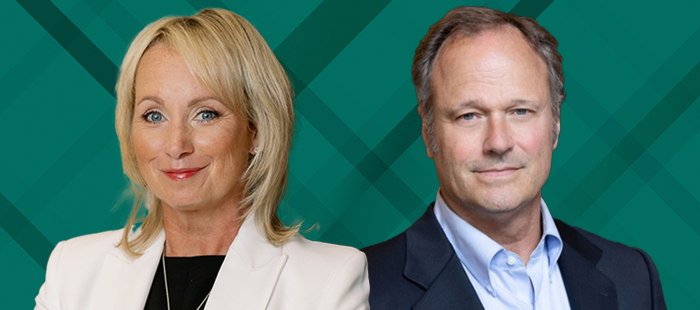Encouraging Research With Purpose
- Because ESG covers so many subjects, the Gabelli School focuses on research that creates the knowledge that companies need now—or might need in the future.
- The school actively seeks to hire candidates who want to conduct research that will contribute positively to society.
- The school offers prizes for impact-oriented research and funds faculty who co-create ESG knowledge with industry partners.
Environmental, social, and governance (ESG) issues have become major drivers of decision-making in business today. Sound ESG strategies are not only important to investors and managers, but also critical to the health of our environment. Because business leaders have a long-standing tradition of turning to academics to solve their most vexing problems, business researchers who focus on ESG concerns have a real opportunity to create positive change for people and the planet.
At Fordham University’s Gabelli School of Business in New York City, an emphasis on ESG is a natural fit. Fordham is a Jesuit institution that values service to society and the world around us. The Gabelli School’s mission is to inspire positive global change while “developing students into compassionate business leaders, and supporting faculty and students in the ongoing generation of new knowledge.”
For decades, we have lived up to this mission by helping businesses create real, measurable change. Not only have individual faculty conducted research on social issues, the school signed on to the United Nations Principles for Responsible Management Education and became an Ashoka Changemaker Campus.
But we began to formally emphasize ESG and corporate social responsibility (CSR) in the fall of 2020, particularly through conferences and faculty grants devoted to CSR. We knew that, as the business world turned more of its attention to the goal of doing good, we needed to intensify our efforts to make a positive societal impact.
Finding Our Focus
Because the ESG umbrella is so broad, the Gabelli School considers which research initiatives will co-create the most useful knowledge for companies. These are the initiatives that are most likely to be implemented.
The school looks at two factors when choosing research activities: the expressed needs of our industry partners and the ESG-related strengths and expertise of our faculty. This allows us to answer two questions: What do companies need? And what additional knowledge can our faculty supply, even if companies haven’t asked for it yet?
Business researchers who focus on environmental, social, and governance concerns have a real opportunity to create positive change for people and the planet.
By mixing responsive and proactive approaches, we can help companies solve today’s challenges while encouraging them to think about what lies around the corner. Recently, we have focused our efforts on these areas:
- Ongoing collaborative, mission-driven discussions to identify the ESG-related hurdles that companies face. We might look at the results of a company’s CSR strategies, then design projects around those results.
- Opportunities for faculty to develop research networks and clusters with ESG-minded colleagues and practitioners. For example, a member of our law and ethics faculty assembled a community of scholars in the New York area; all of them are interested in virtuous leadership, ethical development, and moral expertise.
- A new program that embeds Gabelli School researchers into partner organizations. As these researchers engage in on-the-ground information-gathering, they produce findings tailored to each organization’s goals and needs.
- Our Consumer Financial Well-Being initiative that translates current business research into relatable terms. No-cost online sessions aimed at the public cover topics such as how shoppers interpret prices, whether automatic withdrawal apps are an effective way for people to build savings, and whether financial firms are doing enough to serve women customers.
Motivating Faculty
Leaders at the Gabelli School rely on a mix of intrinsic and extrinsic motivation to help faculty sustain an ongoing, long-range interest in generating ESG-oriented knowledge.
The intrinsic motivation is present because our faculty are already inclined toward solving ESG problems and enabling companies to treat employees, society, and the environment well. In part, that’s because the school actively seeks out candidates who have demonstrated the potential to conduct research with impact and who have deep personal connections to the Gabelli School’s mission.
When recruiting and onboarding faculty, school leaders directly communicate expectations for high-quality research that also can contribute positively to society. During orientation sessions, administrators encourage new faculty to think about how their future work can align with these priorities. In this way, administrators position the school to meet AACSB’s Standard 8, which expects faculty to produce intellectual contributions that have “a positive societal impact, consistent with the school’s mission,” and Standard 3, which expects faculty to actively pursue research.
This intrinsic motivation is heightened because faculty have so many opportunities to train the next generation of ESG-focused business leaders and researchers. For instance, the Gabelli School offers 47 courses that focus on ESG topics. The school also encourages students to participate in ESG research by collaborating on faculty projects or conducting independent work with advisors.
The Gabelli School actively seeks out candidates who have demonstrated the potential to conduct research with impact, and school leaders communicate expectations for research that can contribute positively to society.
As a result, PhD students and alumni have published research on pressing social issues such as gun violence, gender diversity in corporate leadership, and “green bonds.” Honors students have written thesis papers that explore how ESG affects the finances of healthcare firms, how financial literacy can shape the decision-making of lower-income women, how the COVID-19 pandemic affected the distribution of wealth in U.S. industries and households, and whether consumers are more likely to respond to inauthentic “greenwashing” or real facts about corporate sustainability.
In addition, when sophomores complete consulting projects on real companies, they must look at the organizations’ challenges and performance through an ESG lens. Some student teams have presented their work to the companies, encouraging improvement based on their analyses. These projects have two-fold benefits: Students see how their work can help companies develop and grow, and professors are inspired by how their classroom lessons are promoting positive real-world change.
Supporting the Work
The Gabelli School seeks to provide extrinsic motivation to faculty by supporting ESG-focused research in several ways.
First, while we retain our focus on top-tier peer-reviewed journals as a measure of research productivity and quality, we also weigh impact. For instance, we consider impact when determining eligibility for summer research grants.
Second, at the annual Faculty Day, the school offers three to five prizes every year for impact-oriented research. For these awards, which are usually about 500 USD each, we solicit nominations from faculty and senior administrators.
Third, the school funds faculty who are co-creating ESG knowledge with industry partners. Here are some highlights:
- PVH Corp. supplies ongoing funding for research on ESG topics. These include Global Thought Leadership Grants, which provide 30,000 USD for each selected researcher and the prospect of additional scholarly support if the work is selected for publication in a top journal; and CSR Faculty Fellowships, which provide 8,000 USD for faculty pursuing CSR research.
- PVH Corp. also underwrites access to two new databases: MSCI ESG Time Series Data and the S&P Market Intelligence ESG Package. These focus on empirical research in the ESG space.
- The school maintains seven rotating endowed chairs, including one devoted to social entrepreneurship and one to sustainability. Chair holders are selected through a Chair Challenge and keep their positions for two years. Recipients receive summer research stipends, research grants, and course releases.
- A professional development fund expands faculty members’ access to conferences, skill-development workshops, and fellowships that support mission-driven research. The fund also provides financial incentives for faculty whose research is accepted into high-quality publications.
- The school builds mutually beneficial partnerships with external organizations based on a four-part framework. In the area of engagement and expertise, we look for ways that companies can be directly involved in student education. In the area of research knowledge, we collaborate around knowledge co-creation. In the area of enterprise learning, we develop degree-bearing or nondegree custom programs for companies. And in the area of talent, we provide a pipeline of well-prepared students and alumni who can be considered for roles at partner companies.
The school weighs impact when evaluating research productivity, offers prizes for impact-oriented research, and funds faculty who co-create ESG knowledge with industry partners.
These types of external support have encouraged faculty to work on initiatives that fulfill Fordham’s deeply held values of creating good for all. As one example, the Gabelli Center for Global Security Analysis partnered with the CFA Society to host a seminar by George Serafeim on “Purpose and Profit: How Business Can Lift Up the World.”
As a second example, Michael Guo and his co-authors examined the voting patterns among mutual fund shareholders on ESG issues to produce an article called “Walk the talk: ESG mutual fund voting on shareholder proposals.” It was recently published in the Review of Accounting Studies.
Challenges and Outcomes
While our focus on ESG has been rewarding, our efforts at fostering engagement between faculty and industry partners have faced challenges that will sound familiar to anyone in business education.
For instance, we know there are limits to available funding. Like other schools, we are under mounting pressures related to enrolling students, updating the curriculum, and building our regional and national stature. Our faculty must cope with extraordinary demands on their time as they balance their responsibilities of teaching and advising students, attending conferences, publishing articles, and managing the overall trajectories of their careers.
Even so, the Gabelli School continues to purposefully prioritize research that produces good in society or improves capacity in industry. We have done this by requiring the recipients of specialized grants to focus on social or environmental benefit; by sponsoring and disseminating research that helps companies deliver on their promises of doing good; and by carefully hiring and onboarding faculty who pursue socially beneficial research with passion and intention.
Through these efforts, we hope to meet our goal of preparing today’s professionals to generate new knowledge that leads to a better future for our world.






